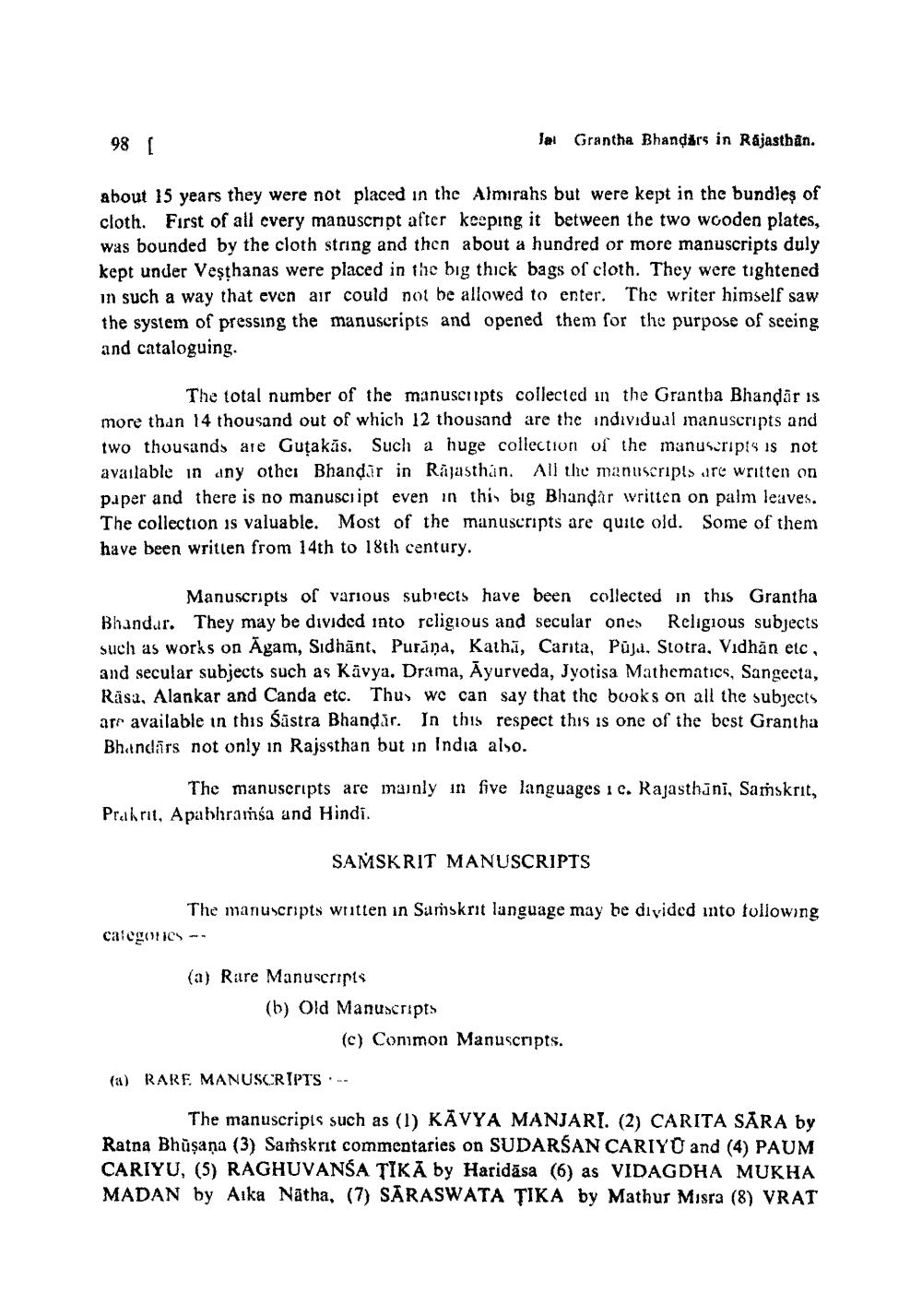________________
981
Jal Grantha Bhandars in Rajasthan.
about 15 years they were not placed in the Almirahs but were kept in the bundles of cloth. First of all every manuscript after keeping it between the two wooden plates, was bounded by the cloth string and then about a hundred or more manuscripts duly kept under Veşthanas were placed in the big thick bags of cloth. They were tightened in such a way that even air could not be allowed to enter. The writer himself saw the system of pressing the manuscripts and opened them for the purpose of seeing and cataloguing.
The total number of the manuscripts collected in the Grantha Bhandar is more than 14 thousand out of which 12 thousand are the individual manuscripts and two thousands are Gutakās. Such a huge collection of the manuscripts is not available in any other Bhandar in Rajasthan. All the manuscripts are written on paper and there is no manuscript even in this big Bhandar written on palm leaves. The collection is valuable. Most of the manuscripts are quite old. Some of them have been written from 14th to 18th century.
Manuscripts of various subiects have been collected in this Grantha Bhandar. They may be divided into religious and secular ones Religious subjects such as works on Āgam, Sıdhānt. Purāņa, Karhī, Carita, Púju. Stotra, Vidhãn etc, and secular subjects such as Kavya, Drama, Ayurveda, Jyotisa Mathematics, Sangecta, Räsa, Alankar and Canda etc. Thus we can say that the books on all the subjects are available in this Šāstra Bhandir. In this respect this is one of the best Grantha Bhandārs not only in Rajssthan but in India also.
The manuscripts are mainly in five languages i e. Rajasthani, Samskrit, Prakrit. Apabhramsa and Hindi.
SAMSKRIT MANUSCRIPTS
The manuscripts written in Samskrit language may be divided into following categories -
(a) Rare Manuscripts (b) Old Manuscripts
(c) Conimon Manuscripts.
(a) RARE MANUSCRIPTS.
The manuscripts such as (1) KĀVYA MANJARI. (2) CARITA SÄRA by Ratna Bhūşaņa (3) Sanskrit commentaries on SUDARSAN CARIYO and (4) PAUM CARIYU, (5) RAGHUVANSA TIKĀ by Haridāsa (6) as VIDAGDHA MUKHA MADAN by Aika Natha, (7) SĀRASWATA TIKA by Mathur Misra (8) VRAT




